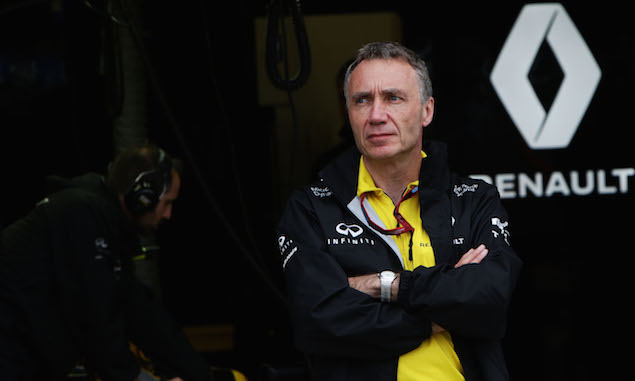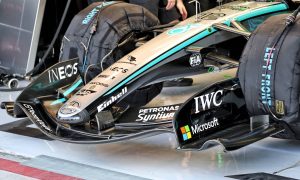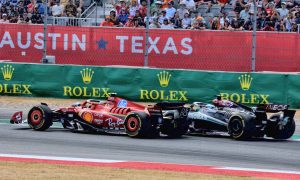
F1 teams including Renault and Williams are wary of the potential impact Britain's exit from the European Union (EU) will have on recruitment.
Eight of the current 11 teams on the F1 grid have key bases in Great Britain, with only Ferrari, Toro Rosso and Sauber headquartered in Europe. As a European-centric sport, F1 teams are awaiting to see if there will be an impact on how they are allowed to recruit when Brexit happens, with the EU insisting that freedom of movement will be a condition for Britain's access to the single market.
With Renault currently looking to expand rapidly following its takeover of Lotus, chief technical officer Bob Bell admits it is difficult to recruit from other teams and could become harder if the UK's exit - which is set to be initiated by the end of March 2017 - leads to restrictions on the employment of EU citizens.
"There is a shortage of skilled engineers," Bell said. "Particularly if you want skilled engineers with Formula One experience and that is partially to do with the fact that most engineers in Formula One these days are locked down with long-term contracts which makes it difficult to get them at relatively short notice.
"I don’t think there’s necessarily a shortage of young, eager and very capable of graduates, for example, coming out of the education system. Most teams on the grid try and use that resource as much as they possibly can. And so, I think I would agree there is potentially a skill shortage but I think perhaps the difficulties that a team such as ours faces in recruiting is more to do with the difficulty of acquiring experienced F1 engineers already locked into existing teams.
"As for the influence of Brexit, it’s too early to tell what the consequence of that will be on the future of the supply of engineers in the UK. I think it would be great if the UK plc could develop a stronger industrial base. I think that would be good for the country and I think all of us in Formula One would be fully supportive of initiatives that helped develop that.
"Not only would it potentially provide more engineering candidates for us in recruitment – but I think it would be good for the country as a whole. But ultimately, what happens, post-Brexit, I don’t think any of us can really tell."
Williams' Pat Symonds says F1 teams are already limited in their ability to recruit non-European engineers and hopes the impending departure from the EU does not extend that difficulty to other European candidates.
"Yeah, I think I agree with what Bob said," Symonds said. "We’re not a team that’s expanding rapidly in the same way that Renault are. We do run a very strong undergraduate program and I am continually amazed at the quality of the undergraduates that go through our team. They really are very strong indeed. And, of course, the undergraduate schemes are very good because they give us a chance to have a sort-of extended interview with people.
"We also run graduate schemes. We sometimes take on those that have been on the undergraduate scheme, sometimes others. We don’t find a problem at that level. We get very good people coming in. I do agree that getting the senior people is quite difficult. People are on long-term contracts, and we put a lot of time at Williams into succession planning. So we do try to look quite a long way ahead at where things are going.
"In terms of Britain leaving the European Union, I think it is too early to tell how it will be. We do employ a lot of Europeans. We have particularly in aerodynamics, there seems to be a very strong contingent from France. I hope that we still maintain relative ease of employing Europeans. It’s already very difficult to employ non-Europeans in the UK. In my opinion far too difficult. So I hope things don’t get any worse."
2017 F1 driver line-ups so far
Scene at the 2016 Japanese Grand Prix
Japanese Grand Prix - Quotes of the week
Keep up to date with all the F1 news via Facebook and Twitter






